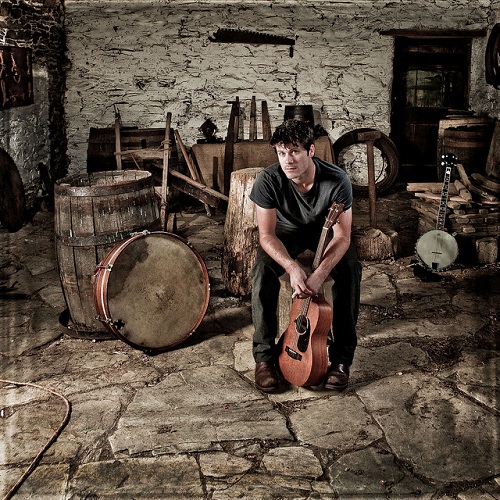FOR YEARS musicians have claimed in pre-album release interviews to be ‘going back to their roots’, re-discovering their heritage and casting off the shackles of show-business, insisting it’s ‘all about the music.’ More often than not this is simply PR fluff, an angle cooked up to make the impending release sound more worthy and the artist more in touch with their hardcore fans.
But few can have gone to such extremes as Seth Lakeman, who literally dug deep into his West Country background by descending into the mines and workshops of a disused copper port to record his new record. Tales From The Barrel House is a raw, gritty album telling stories of labourers and artisans from days gone by, and Lakeman speaks with passion and enthusiasm as he tells FFS about how the idea developed.
“It evolved pretty naturally. I wrote the songs over 12 months and I picked a concise concept of professions – people who worked with their hands, craftsmen like blacksmiths, stonemasons – and then I was looking for a location to try and draw people in to the stories I was trying to tell. I did try to record in a posh studio, but it didn’t quite work out. It didn’t have the raw edge that I think it needed.”
Lakeman took the unorthodox approach of playing every instrument on the album himself, from his trademark fiddle and tenor guitar to a jangling array of percussion made up of bits of old iron, discarded tools and an old Salvation Army drum rescued from a junkshop.
“That was part of the creative period. I had arrangements, but I think it was good that I wasn’t a conventional percussionist or producer, because I wasn’t being too fussy about anything. It was more about just collecting everything. It’s a lot to do with being confident and comfortable in what you’re doing and what you’re writing about.
“I have always been a fan of concept records, I loved listening to the Kate Bush records and things like that which have a beginning, middle and end. There is a story behind them. It was just trying to claw back some relevance and control to what I was doing.”
Ah, yes – control. Sitting backstage at the Leamington Assembly ahead of the final gig of his latest UK tour, Lakeman’s eyes light up as we move on to the elephant in the room – his split from Virgin/Atlantic records, and the decision to release Tales From The Barrel House independently. He says the tipping point came when Virgin merged with Atlantic, creating what Lakeman described as “a completely different team – a pop team.”
“I had no control, they picked the songs, it was all very bizarre and you get confused about what’s going on. So thankfully there were a few meetings with a few people, they said ‘It’s probably a good idea if you leave’ and I said ‘It’s definitely a good idea if I leave.’”
It was a bold decision from an artist who, for the last few years, has been the reluctant poster boy of modern folk and seemingly on the brink of breaking through to the mainstream. But Lakeman has no regrets.
“As much as record labels have got cash and they’ve got teams that work with musicians, I think when you start playing around with genres…” he trails off, before finding his way back with a definitive statement. “I definitely am a folk artist. I enjoy telling stories and I don’t want to change what I like doing. That was when it became uncomfortable for me, so doing the independent thing is much more enjoyable.”
The 34-year-old grows more animated, keen to stress the importance of the new record as a body of work, much like a novel, to be digested and considered over time.
“I guess it’s quite retro in that sense, it’s more about a piece of work and it’s not about individual singles or tracks, which major labels can press on you. The internet is great, it gives you that control and access, but believability is tough and people are so obsessed with immediacy. Patience is not cool for young people now, they need to be hit quickly. Gimmicks are almost as big as they ever were within music or entertainment. It’s all about the first minute of something.”
Whether it’s retro, traditional or “back to basics”, the new direction certainly seems to suit Lakeman, who appears to have re-discovered the simple joy of musicianship.
words: Sam Blackledge


